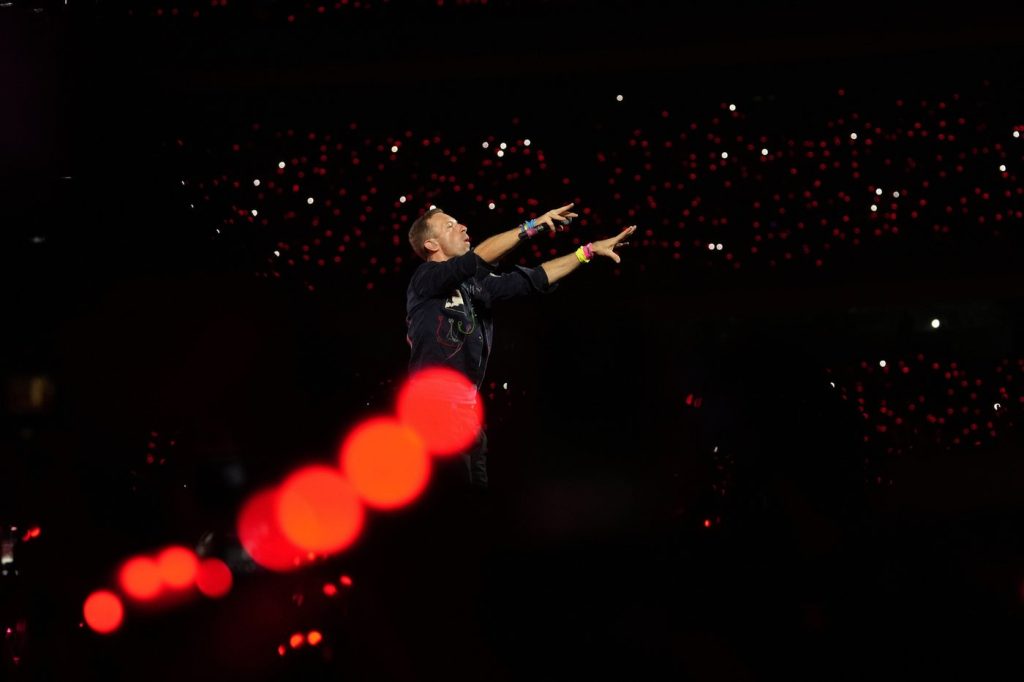NEW YORK (AP) — The recent viral incident involving the "KissCam" at a Coldplay concert has sparked significant debate about privacy in our increasingly digital world. When the camera focused on a couple who attempted to avoid the spotlight, it did not take long for the internet to react. The footage quickly became a subject of numerous memes, parody videos, and social media posts, leading online sleuths to identify the couple as the CEO and chief people officer of the artificial intelligence company Astronomer.
The fallout from this incident was notable; Astronomer announced the CEO's resignation over the weekend, prompting discussions regarding business ethics and corporate accountability. However, the larger conversation centers on privacy in the context of increased visibility in public spaces and the phenomenon termed "social media surveillance." Experts contend that moments previously thought to be private or confined to physical locations are now often shared online, highlighting the diminished expectations of privacy in public gatherings.
Today, cameras are pervasive in our lives, from CCTV surveillance to personal smartphones, which allow users to record any interaction. Concerts and sporting events have long showcased audience members on jumbotrons, making them part of the live experience. However, this has changed significantly with technological advancements; now, a single phone recording can lead to images and videos spreading rapidly across social media platforms.
Ellis Cashmore, author of "Celebrity Culture," suggests that moments like the KissCam episode raise critical questions about the nature of privacy. According to him, privacy, in its traditional sense, is virtually non-existent now. Mary Angela Bock, a professor at the University of Texas at Austin, further notes that public gatherings, such as concerts, should no longer be assumed to guarantee privacy.
While variations of the KissCam have been common at large events, the speed at which these moments can spread online distinguishes them from past occurrences. Often, it merely takes one person to capture an interaction with their phone and post it, allowing it to reach a global audience almost instantaneously. Bock emphasizes that the rapid distribution system facilitated by social media has altered the way we understand privacy and exposure in public spaces.
Another troubling aspect of this phenomenon is what follows viral exposure — the potential for "doxing," where individuals identified in videos or photos are publicly outed and often harassed online. The quick identification of the Coldplay couple illustrates this risk, with the company’s now-former corporate executives facing backlash on social media, despite their efforts to remain private.
This issue extends beyond the individuals directly involved. The internet’s rapid identification capabilities can lead to harassment of innocent bystanders mistakenly associated with viral incidents. In the Coldplay example, rumors swirled regarding a third individual captured on camera, leading to unwarranted speculation and targeting online, despite the company clarifying that no other employees were present at the concert.
Alison Taylor, a professor at New York University, highlights the significant emotional toll that online harassment can have on real individuals who find themselves at the center of unwanted attention. While the viral nature of such moments raises questions about ethics and responsibility, it also underscores the broader social implications of our current digital landscape.
While legal restrictions on sharing footage from public settings remain limited, experts like Bock advocate for a more mindful approach towards social media sharing. They encourage individuals to pause and reflect before disseminating content that may have broader implications for those involved. As Bock aptly states, social media has transformed dramatically, yet society's ethical and behavioral standards have struggled to keep pace with these technological advancements.











